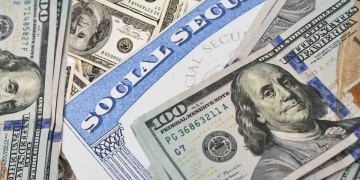The IRS stimulus check is basically financial assistance created to ease the blow of the COVID-19 pandemic. Remember the famous “stimulus” checks announced a few years ago? This is from that. It’s not a new payment or anything like that; it’s more like that money that was left pending and is now being adjusted by the IRS through something called the Recovery Rebate Credit.
The good news is that if you’re eligible and haven’t received it yet, the IRS will send it to you automatically. And hey, if they’ve already paid you something but not everything, they’ll also give you what’s missing. But be patient because the process will continue until January 2025.
Who is this stimulus check for?
Here’s the trick: this payment is for people who meet the requirements but, for some reason, didn’t claim the credit on their 2021 tax return. Maybe you didn’t know you were entitled to it, or maybe you just let it slip. It doesn’t matter, the IRS is handling that review.
The check will be sent to the bank account you listed on your 2023 tax return. If that account no longer exists, don’t worry (really, don’t panic). The bank will return the money to the IRS, and they will then send it to the address they have on file for you. However, if you’ve moved, make sure to update your information—because we don’t want the check ending up at your neighbor’s house!
What if I closed my bank account?
Good question. If you closed the bank account you used on your last return, you don’t need to do anything special. The IRS will reissue the payment and send it to the address they have on file. Just make sure your address is correct because, well, you don’t want that check wandering around the world.
What do you need to do to receive your money?
Okay, here are some quick tips. If your income is $73,000 or less, you can use the IRS Free File program to file your taxes online, for free and without hassle. And I recommend using direct deposit. It’s much faster and saves you the stress of waiting for a physical check. You just need to have your bank account number and routing number on hand, and you’re set.
Why is this credit important?
The famous Recovery Rebate Credit, as technical as it sounds, seems complicated, but it’s not. Basically, it’s used to adjust what the IRS owes you for the stimulus payments. That amount can be used to reduce any taxes you owe for 2021 or simply added to your tax refund. It’s a nice financial boost, right?
Log in to your IRS online account, and there you can see a summary of the payments they’ve already made to you. It’s like a history, but for the money they’ve sent you. If there’s anything pending, you can confirm it there. And if you have any questions, you can always call them, though I warn you, their lines are usually busy.
How long do I have to claim this?
Well, the IRS will be distributing these checks until January 2025. Although it may appear lengthy, it’s crucial not to wait until the last moment. The sooner you get started, the better. If you need to submit anything, do it now and avoid complications.
Don’t miss this opportunity. It’s your money, and hey, it wouldn’t hurt to have some extra in your account. Update your information, review your returns, and use the electronic tools.
Can receive the stimulus check if I was not a U.S. citizen in 2024?
The U.S. government issued several rounds of “Economic Impact Payments” (often called stimulus checks) starting in 2020 and continuing into 2021. These were tied to specific legislation during the COVID-19 pandemic (e.g., the CARES Act, the Consolidated Appropriations Act, and the American Rescue Plan).
As of late 2023, there are no official announcements about a new round of federal stimulus checks for 2024. Unless new legislation is passed, there is no federal stimulus program slated for 2024. Different states, however, sometimes provide their own relief or rebate checks. If such a program exists in your state, you may want to check local government websites.
Eligibility Criteria for Past Stimulus Checks
- Although exact rules varied slightly by round, general requirements for receiving past Economic Impact Payments included:
- Having either U.S. citizenship or being a resident alien with an eligible Social Security Number.
- Not being claimed as a dependent on someone else’s tax return.
- Filing a U.S. tax return (when necessary) or otherwise registering with the IRS if you had non-filer status but still qualified.




